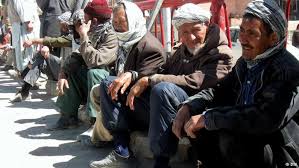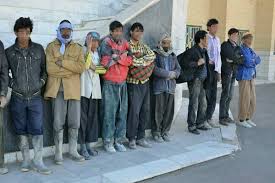Workers’ rights in Afghanistan
Workers’ rights in Afghanistan are facing many challenges due to the specific economic and social conditions of this country and the instabilities caused by war and insecurity. Labor laws in Afghanistan are regulated under the supervision of the Ministry of Labor and Social Affairs, Martyrs and Disabled (MoLSAMD). But in practice, the implementation of these laws and the protection of workers’ rights have many problems. The most important workers’ rights are as follows:

-
minimum wage:
- According to the labor law of Afghanistan, the minimum wage must be determined, but in many areas and in many sectors, this minimum wage is not observed. Many workers, especially in the informal sector, work for less than the minimum wage.
-
Working and rest hours:
- Afghanistan’s labor law limits working hours to 40 hours per week and guarantees workers’ right to weekly rest and annual vacation. However, many workers are forced to work more than these hours and do not have enough rest.
-
Insurance premiums and benefits:
- Workers must have access to social insurance, unemployment insurance and accident insurance. These insurances are not properly implemented in practice and many workers are deprived of these benefits.
-
Safety and health conditions of the work environment:
- Employers are obliged to provide health and safety conditions in the workplace. In many cases, especially in the construction and mining industries, these conditions are not met and workers are exposed to serious risks.
-
Rights of working women and children:
- Afghanistan’s labor law emphasizes the prohibition of child labor and the protection of the rights of working women. However, the use of children in hard labor and the lack of respect for women’s rights in many sectors remain problematic.
-
Labor organizations and the right to strike:
- Workers have the right to form trade unions and fight for their rights through these organizations. However, trade union activity is limited and the right to strike is not widely recognized.
-
Timely and fair payment:
- Workers must receive their wages on time and in a fair manner. In practice, many workers face delayed or incomplete payments.
These problems require strengthening government oversight, improving economic and social conditions, and international cooperation to promote workers’ rights in Afghanistan. Improving the condition of workers can contribute to the economic and social stabilization of the country and increase public welfare.

Labor laws in Afghanistan
Labor laws in Afghanistan are set in the framework of the Afghan labor law, which is designed to protect the rights of workers and regulate the relations between workers and employers. These rules include the following:
-
Minimum working age:
- The minimum working age in Afghanistan is 18 years. The work of children under this age is prohibited, except in special cases where the work is light and harmless to the health and development of children.
-
working hours:
- Standard working hours for workers are 40 hours per week, that is 8 hours per day. Working beyond these hours is considered overtime and must be paid at the overtime rate.
-
rest and holidays:
- Workers have the right to rest at least one hour a day and must have at least one day off a week. Also, workers are entitled to 20 paid vacation days per year of work.
-
Wages and salaries:
- The labor law of Afghanistan stipulates that workers must receive their wages regularly. Wages must be paid in cash and on time. Also, the minimum wage is set by the government.
-
Insurance and benefits:
- Workers have the right to have access to social insurance, including work accident insurance, unemployment insurance and health insurance. Employers are obliged to provide these insurances for their workers.
-
Safety and health conditions of the work environment:
- Employers are obliged to provide health and safety conditions in the workplace. They must take the necessary measures to prevent work accidents and protect workers’ health.
-
Labor organizations:
- Workers have the right to form trade unions and through these organizations to improve working conditions and defend their rights. The right to strike is also recognized in the framework of existing laws.
-
Non-discrimination:
- Discrimination based on gender, religion, ethnicity and other matters is prohibited in the workplace. Men and women should have equal rights in the workplace and enjoy fair working conditions.
-
Labor contracts:
- Labor contracts must be written and specify the working conditions, duties, rights and benefits of the worker. Any change in the contract must be notified and agreed upon by the parties.
-
Dispute resolution:
- Labor disputes should be resolved through negotiation and mediation. If there is no agreement, the matter can be referred to the labor courts.
These laws were formulated to protect workers’ rights and create a healthy and fair work environment, but challenges such as the lack of full implementation of these laws, lack of supervision, and security and economic problems prevent the full realization of these goals. Strengthening government supervision, increasing workers’ awareness of their rights, and improving economic conditions can contribute to better implementation of labor laws in Afghanistan.
